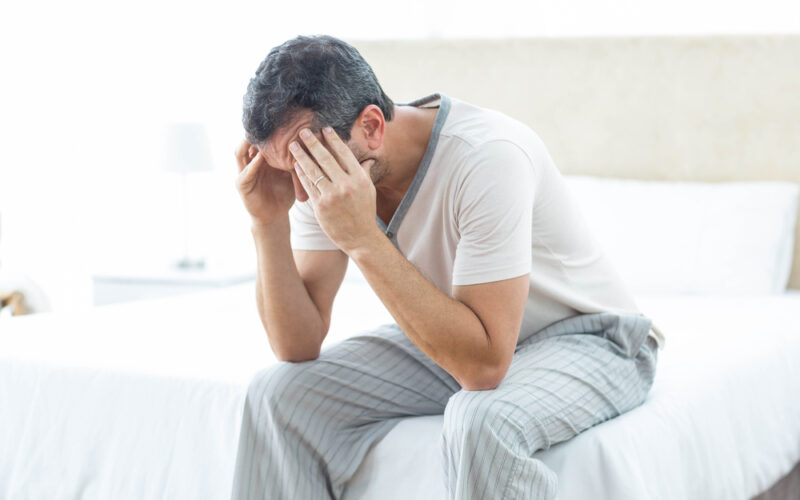Low libido is a common concern affecting men of all ages, impacting personal well-being and relationships. Understanding the causes of low libido men experience is crucial because male low sex drive typically stems from physical, psychological, lifestyle, and relationship factors. Once underlying causes are identified, effective treatments are available to restore sexual desire.
Hormonal Imbalances
Hormones play a fundamental role in sexual desire, making hormonal imbalances significant hormonal causes male low T and other sexual health issues.
Low Testosterone is the most well-known hormonal cause of decreased libido. Testosterone maintains sex drive, energy, muscle mass, and mood. Levels naturally decline by 1% per year after age 30, but some men experience dramatic decreases due to obesity, diabetes, chronic illness, or medications. Clinical hypogonadism occurs when levels fall below 300 ng/dL.
Thyroid Dysfunction, particularly hypothyroidism, impacts sexual desire by affecting metabolism, energy, and mood. Elevated Prolactin Levels can suppress testosterone production and directly reduce sexual desire, occurring due to pituitary tumors, medications, or other medical conditions.
Psychological and Emotional Factors
The mind plays a crucial role in sexual desire, making psychological reasons for low libido among the most common causes.
Chronic Stress from work, finances, or relationships elevates cortisol levels, suppressing testosterone and making it difficult to feel sexual desire. Depression causes anhedonia—loss of interest in pleasurable activities, including sex—while affecting neurotransmitters involved in sexual response.
Anxiety, whether general or performance-related, can create cycles where fear leads to avoidance, further reducing sexual confidence. Relationship Issues including poor communication, lack of intimacy, or unresolved conflicts create emotional distance that makes sexual connection difficult.
Low Self-Esteem and body image issues can lead to self-consciousness that interferes with sexual desire. Past Trauma can create negative associations with intimacy, while Relationship Boredom in long-term partnerships can gradually diminish sexual interest.
Medical Conditions
Chronic medical conditions can contribute to male low sex drive by affecting energy, blood flow, or overall health.
Diabetes damages blood vessels and nerves essential for sexual response and increases erectile dysfunction risk. Cardiovascular Disease affects blood flow and can create anxiety about physical exertion during sex. Chronic Pain conditions make physical activity uncomfortable and often lead to fatigue and depression.
Obesity converts testosterone to estrogen, lowering available testosterone while contributing to diabetes, sleep apnea, and depression. Sleep Disorders, particularly sleep apnea, disrupt testosterone production and cause fatigue.
Medications
Many commonly prescribed medications can decrease sexual desire as a side effect.
Antidepressants, particularly SSRIs, commonly cause decreased libido by altering serotonin levels. Blood Pressure Medications like beta-blockers can decrease energy and affect blood flow. Opioid Pain Medications suppress testosterone production through hormonal pathway effects.
Anti-Androgens for prostate conditions or hair loss reduce libido by blocking testosterone effects. Other medications affecting libido include antihistamines, anti-seizure medications, and muscle relaxants.
Lifestyle Factors
Daily choices significantly influence sexual health, making lifestyle and male libido connections important intervention areas.
Poor Sleep reduces testosterone production and increases stress hormones. Unhealthy Diet high in processed foods contributes to obesity and cardiovascular disease. Lack of Exercise leads to poor cardiovascular health and decreased testosterone.
Excessive Alcohol depresses the central nervous system and suppresses testosterone. Recreational Drug Use interferes with brain chemistry and hormone production. Smoking damages blood vessels involved in sexual function.
How to Address Low Libido in Men
Addressing male low sex drive requires a comprehensive approach considering all contributing factors.
Medical Evaluation
Consulting a Healthcare Provider is crucial for proper diagnosis through blood tests measuring testosterone, thyroid function, and other health markers. Medication Review can identify alternatives with fewer sexual side effects.
Lifestyle Adjustments
Stress Management through meditation, exercise, and boundary-setting can be highly impactful. Sleep Hygiene improvements significantly impact sexual health. Nutritional Improvements focusing on Mediterranean-style diets support sexual function. Regular Exercise improves blood flow and maintains testosterone levels. Limiting Alcohol and avoiding drugs can improve sexual function.
Psychological and Relational Support
Individual Counseling addresses depression, anxiety, and negative thought patterns. Couples Therapy improves communication and rebuilds intimacy. Sex Therapy specifically addresses sexual concerns and performance anxiety.
Prescription Options
When how to increase male libido requires medical intervention, options include Testosterone Replacement Therapy for confirmed hypogonadism, Clomiphene for secondary hypogonadism while preserving fertility, and PDE5 Inhibitors when erectile dysfunction contributes to decreased desire.
Conclusion
Low libido in men is complex but treatable. Understanding the causes of low libido men experience and taking a comprehensive approach to addressing low desire men through medical evaluation, lifestyle modifications, psychological support, and appropriate interventions can significantly improve sexual desire and quality of life.
Success requires working with qualified healthcare providers who understand sexual health complexity. Most men benefit from addressing multiple factors simultaneously rather than focusing on single aspects.
If you’re experiencing persistent low libido, schedule a consultation with Heally today. Our healthcare providers can develop a personalized approach to address your specific needs and restore sexual vitality.
Sources
NIH: Assessing and managing male sexual problems
ScienceDirect: Standard Operational Procedures for Low Sexual Desire in Men
Oxford Academic: The Potential for Pharmacological Interventions for Low Sex Drive in Men
MedicalNewsToday: What causes a low libido?

